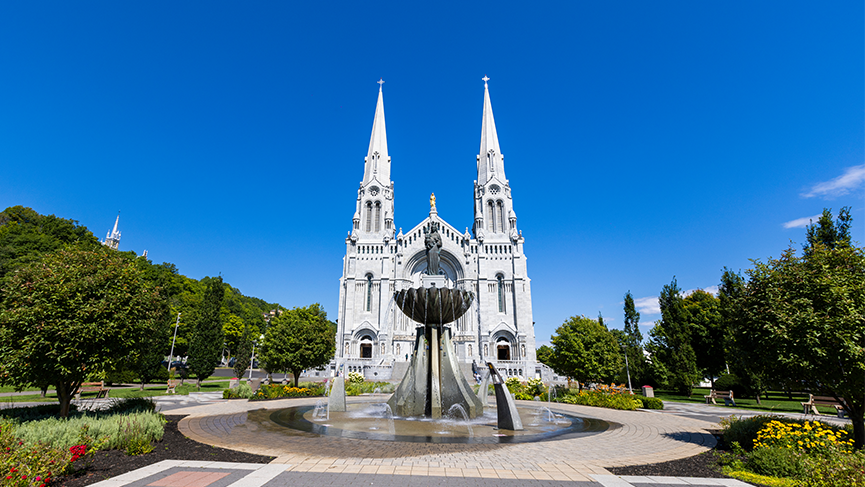Christian Heritage in Quebec: A Treasure to Preserve for Future Generations

General
This summer, I had the opportunity to travel across our beautiful province, discovering the vastness and richness of its historical and cultural heritage. What particularly touched me, beyond the breathtaking landscapes, was the beauty of the religious buildings found in both small villages and large cities. I especially remember a visit to the Basilica of Sainte-Anne-de-Beaupré, where, gazing at the shimmering stained glass windows, I couldn’t help but think of the generations of visitors who have found comfort and inspiration in this place. Invaluable treasures such as the Basilica-Cathedral of Notre-Dame de Québec, St. Joseph's Oratory of Mount Royal, St. Michael’s Cathedral in Sherbrooke, the Ursuline Museum, and many others embody a precious heritage. Each of these places offers a spiritual and cultural heritage that continues to fascinate us today.
As Quebec redefines itself in a constantly evolving world, it is essential to reflect on the deep roots that have shaped our collective identity. In the face of a gradual loss of cultural landmarks, preserving our Christian heritage becomes not only a duty but a necessity to ensure a harmonious and enlightened future for our society.
It is undeniable that modern Quebec society is deeply rooted in the Catholic tradition, which has nourished a rich and diverse ecosystem over the centuries. These roots have borne significant fruit in essential areas such as education, health, culture, politics, the economy, and charity. Since its inception, the Catholic Church has provided inspiring leaders who have marked every aspect of our society, contributing to its development and identity.
Visionary figures such as François de Laval, Marguerite Bourgeoys, and Marie de l'Incarnation played central roles in founding numerous schools, colleges, and universities, significantly influencing our educational system and the moral values of Quebecers. These institutions have trained and inspired notable public figures like Jean Chrétien, George-Étienne Cartier, Henri Bourassa, René Lévesque, Pierre Elliott Trudeau, and Jean Charest, to name just a few.
Moreover, religious orders have made significant contributions not only to Quebec’s healthcare system but also to social services. They have established, managed, and funded many hospitals, clinics, and care institutions while supporting various social services such as charities, family support programs, and community initiatives aimed at helping the most vulnerable.
Our magnificent churches and cathedrals, in addition to representing an invaluable cultural heritage, are today major attractions for pilgrims and tourists, thus playing a crucial role in the local economy.
Although the number of practising Catholics has declined, approximately 6.2 million Quebecers, or 70% of the population, still identify as Catholic. Today, the Catholic Church in Quebec, through its 18 dioceses and over 900 parishes, continues to play a vital role in various sectors, including education, healthcare, and charitable works. These institutions fill gaps in public services, create jobs, and contribute significantly to the well-being of our society.
In my view, education remains a central element of this heritage to be preserved. Since 1840, the Grand Séminaire of the Archdiocese of Montreal (GSAM) has been the cornerstone of Catholic leadership formation, whether for the many priests who have studied there or more recently for community workers interested in the university courses offered. By remaining attentive to societal changes, this institution continues to modernize and train inspiring individuals who embody fundamental values such as love, peace, equity, and hospitality. By preparing future leaders to actively engage in the common good, GSAM plays a crucial role in building a just, harmonious, and responsible Quebec society.
It is our responsibility to preserve and promote the institutions that work to safeguard this precious heritage while being mindful of contemporary challenges, so that the values and contributions of Catholic leaders continue to enrich our society for the flourishing of future generations.
Alexandrina Diac, MBA
General Director
Fondation du Grand Séminaire de Montréal

Comment
Comment
Add new comment